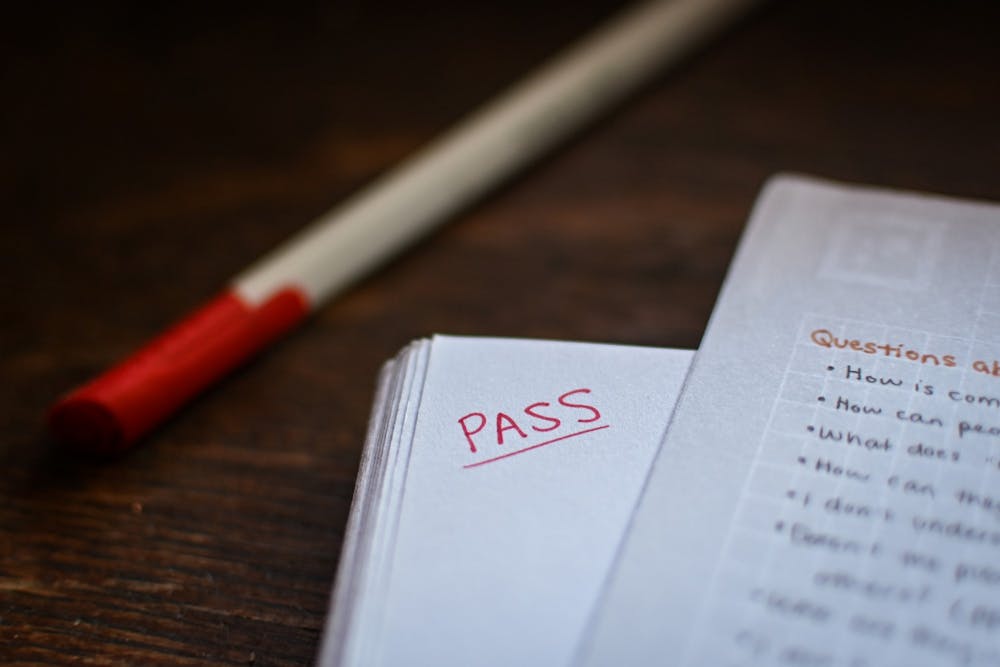
As COVID-19 vaccines are now being administered right on campus and are available to all students, the Penn community is looking forward to the return of normalcy in the upcoming semester. Penn’s decision to fully reopen campus with in-person instruction this fall has brought excitement and relief, allowing students to envision the traditional college experience once again.
However, many students have also expressed concerns regarding the return to in-person classes. Back in March 2020 when classes moved online, the pass/fail policy was implemented to give students some relief during such a difficult and confusing time. “The pass/fail policy has been crucial for ensuring the mental health and well-being of countless students this past year,” says Gabbi Thomas, a College junior. “Students are required to balance coursework, extracurriculars, and countless other commitments, the pressures of which were exacerbated by the pandemic.” Now, as students experience another major shift in their academic careers, continuing the pass/fail policy for one more semester would be an ideal way to provide students both consistency and support.
“In returning to an in-person format, students would not only have to continue to balance [their additional commitments], but also cope with the added pressure of returning to in-person instruction for the first time in over a year,” Thomas continues. Immediately transitioning from 100% virtual learning to 100% in-person learning may be an abrupt and difficult change for some students. Not only have they already adapted to the virtual environment, they have become accustomed to it. For about a year and a half, students have learned the ins and outs of Zoom, adopted new learning techniques, and gained technological experience that has become second nature. The concept of asynchronous classes with prerecorded lectures is new as well, changing many students’ study habits. Meetings, clubs, and interviews have also been conducted online, causing students to be fully immersed in a technological world.
Many may argue that the pass/fail option decreases student motivation and creates more leeway to slack off. However, due to Penn’s competitive and rigorous academic culture, students often place too much emphasis on grades. Not only does this create unnecessary stress and anxiety, this also impacts students’ moods and decreases classroom positivity and participation. Having the option of pass/fail can significantly reduce stress, allowing students to focus solely on their academic material. “Continuing the pass/fail policy for another semester would greatly alleviate this pressure and allow students to enjoy learning and absorb knowledge and course work rather than focusing merely on getting by,” Thomas adds. After all, the true purpose of college is intellectual exploration, not grades and GPA.
Instead of competing with one another for higher scores, especially in classes that grade on a curve, students will be inspired by their peers and divert more effort towards helping each other learn. In addition, students will be more inclined to take academic risks without the usual fear of grades lurking in the back of their minds. Students will have the confidence to explore new classes and test out new ideas, therefore expanding their minds and enhancing their educational experiences.
Pass/fail is especially necessary for rising sophomores who have not had in-person instruction since their senior year of high school. Because they have yet to truly experience classes at Penn, the pass/fail option would provide a great sense of relief as they step into classrooms for the first time. Other students have also taken gap years, dedicating their efforts to extracurricular and economic activities rather than traditional schoolwork. After spending so much time without a structured academic schedule, it will undoubtedly be difficult to transition back to classes, especially in-person ones.
It is also important to remember that the pandemic is not yet over. Even though students are receiving vaccines, there are still many consequences of the pandemic that continue to impact students and their families, including economic burdens, worsened mental health, and long-term physical effects of the deadly virus. The return of in-person instruction does not cause these negative repercussions to automatically disappear. “Administration needs to focus on and ensure that students are supported during this transition period to in-person classes,” says Tori Borlase, College junior and newly elected Undergraduate Assembly President.
Continuing the pass/fail option for one more semester is a small but simple policy that will go a long way for all undergraduate students. Because there has been such positive feedback with pass/fail throughout the past year and a half, students will certainly be grateful and relieved if the policy were to continue in the upcoming semester.
EMILY CHANG is a College first year studying Sociology from Holmdel, N.J. Her email address is changem@sas.upenn.edu.
The Daily Pennsylvanian is an independent, student-run newspaper. Please consider making a donation to support the coverage that shapes the University. Your generosity ensures a future of strong journalism at Penn.
Donate




